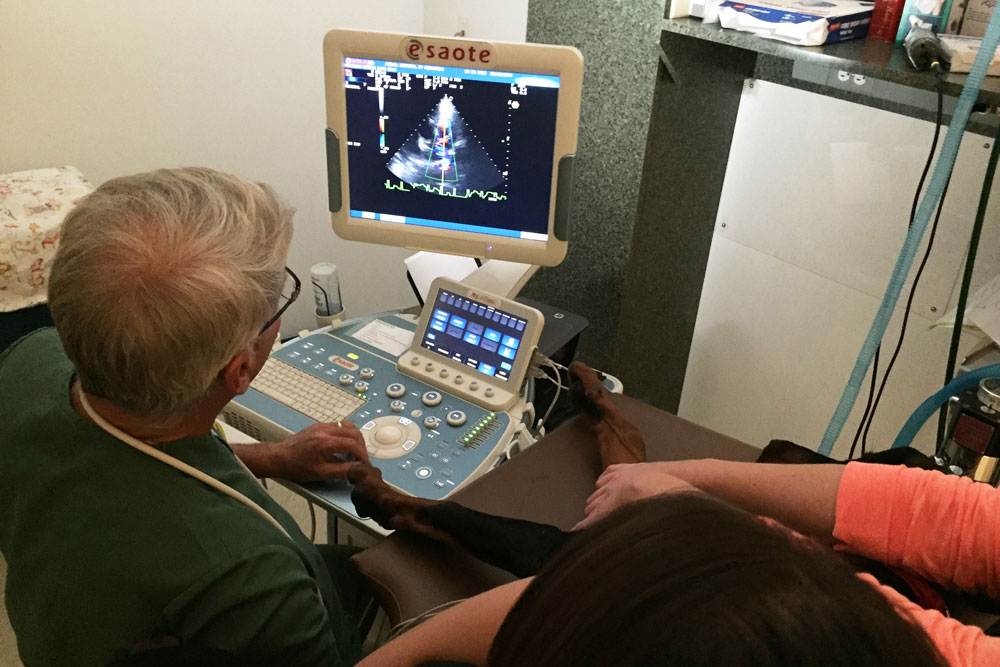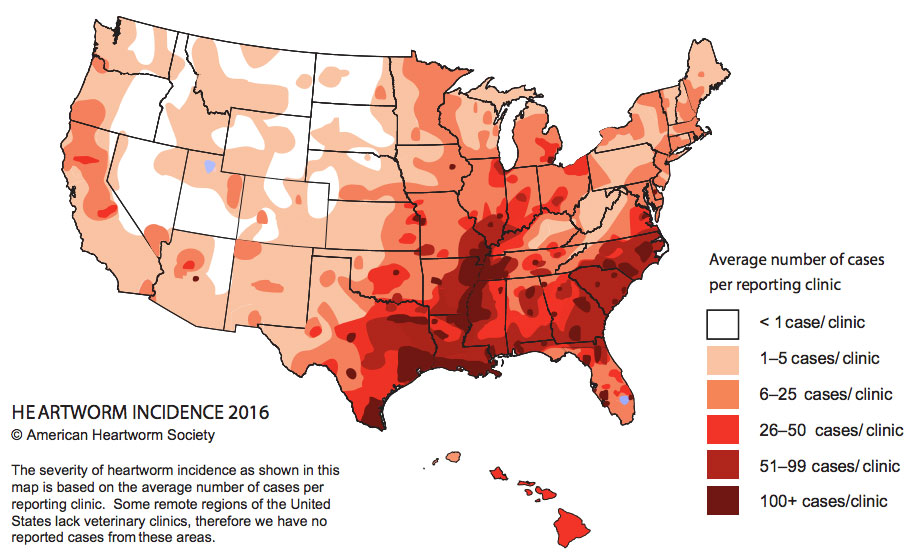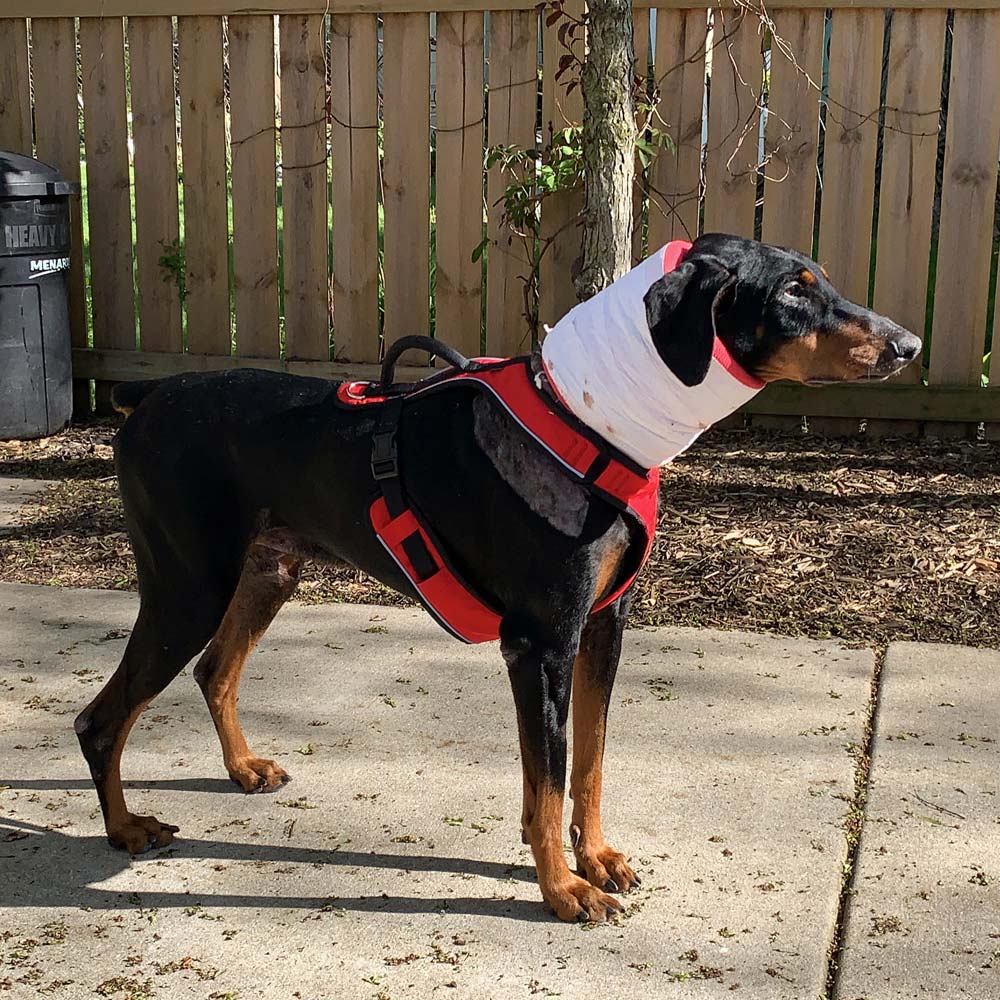When adopting a member of any breed, you need to do your research and familiarize yourself with common health issues. Unfortunately, Dobermans have a number of genetic pre-dispositions, and all adopters need to be aware and understand what to look for.
Bloat: Any deep-chested dog (Boxer, Great Dane, Doberman, etc.) is at higher risk to experience bloat, which can be fatal if not treated early. Read about the warning signs and treatment options.
Dilated Cardio Myopathy (DCM): Sadly, this heart disease affects far too many dogs, and irresponsible breeders are not taking carriers out of the breeding stock. One recent theory on a cause of DCM is the grain-free food trend. Some vets recommend adding a taurine supplement to offset any previous damage due to grain-free food. DCM is a complicated disease that can appear and progress quickly or slowly.

Heartworm Infection: While heartworm is not a genetic disease, it is potentially fatal if not treated. In fact, a heartworm infestation is completely preventable with a variety of options! Let’s debunk several myths about heartworm and understand this preventable disease.

Hypothyroidism: Another common medical condition in Dobes is a low thyroid. It is diagnosed with a blood test (or two) and treated with inexpensive medication. Hypothyroidism can affect a dog’s quality of life, so knowing the signs to test and treat is key.

vonWillebrand’s Disease: A shallow gene pool has also increased the prevalence of a bleeding disorder called vonWillebrand’s disease. It is similar to hemophilia and can be dangerous if not diagnosed when experiencing an injury. A simple clotting test is a good first step before any surgery, and more extensive diagnostics are available.
Wobbler’s Syndrome: Dobermans look strong and powerful, but too many of them experience Wobbler’s syndrome. This cervical spine degeneration can come on slowly or quickly. Some Dobes have seen success with surgery, PT, or medication, but each case is unique. Know what to look for and do what you can to prevent it by using chest harnesses instead of neck collars for walks and not playing tug-o-war games.



